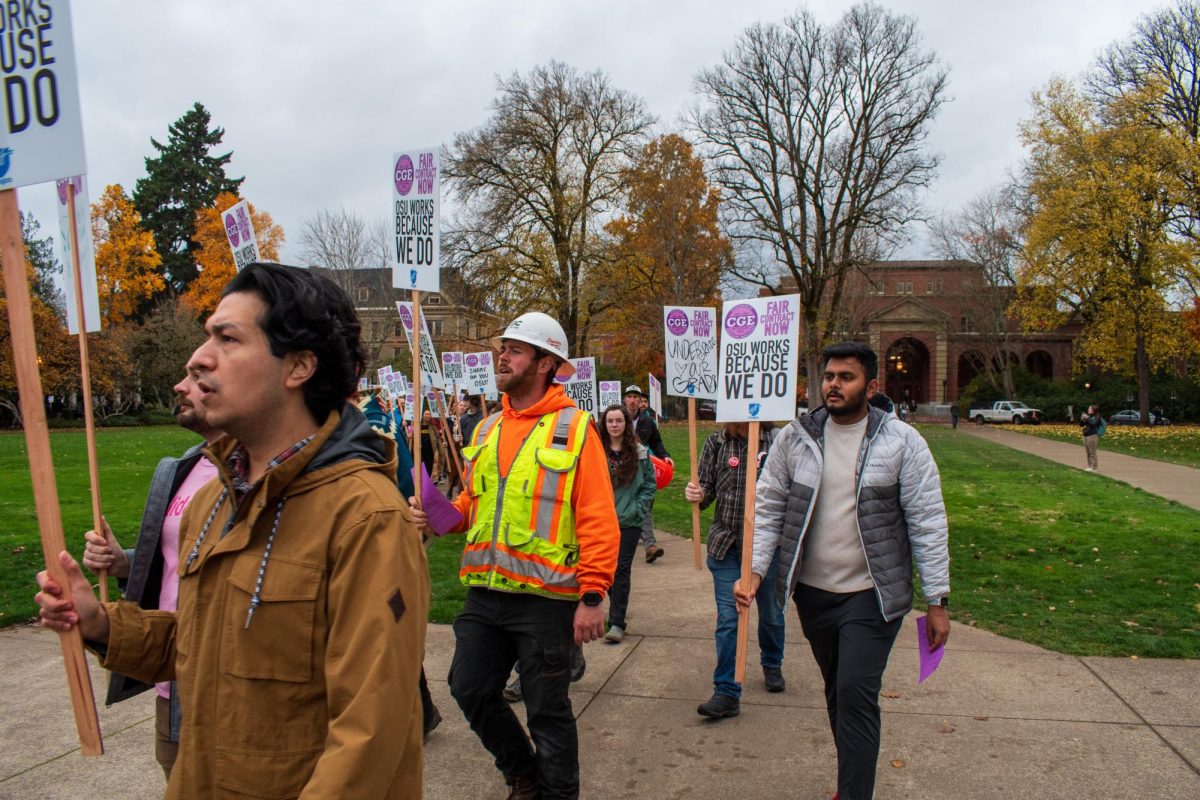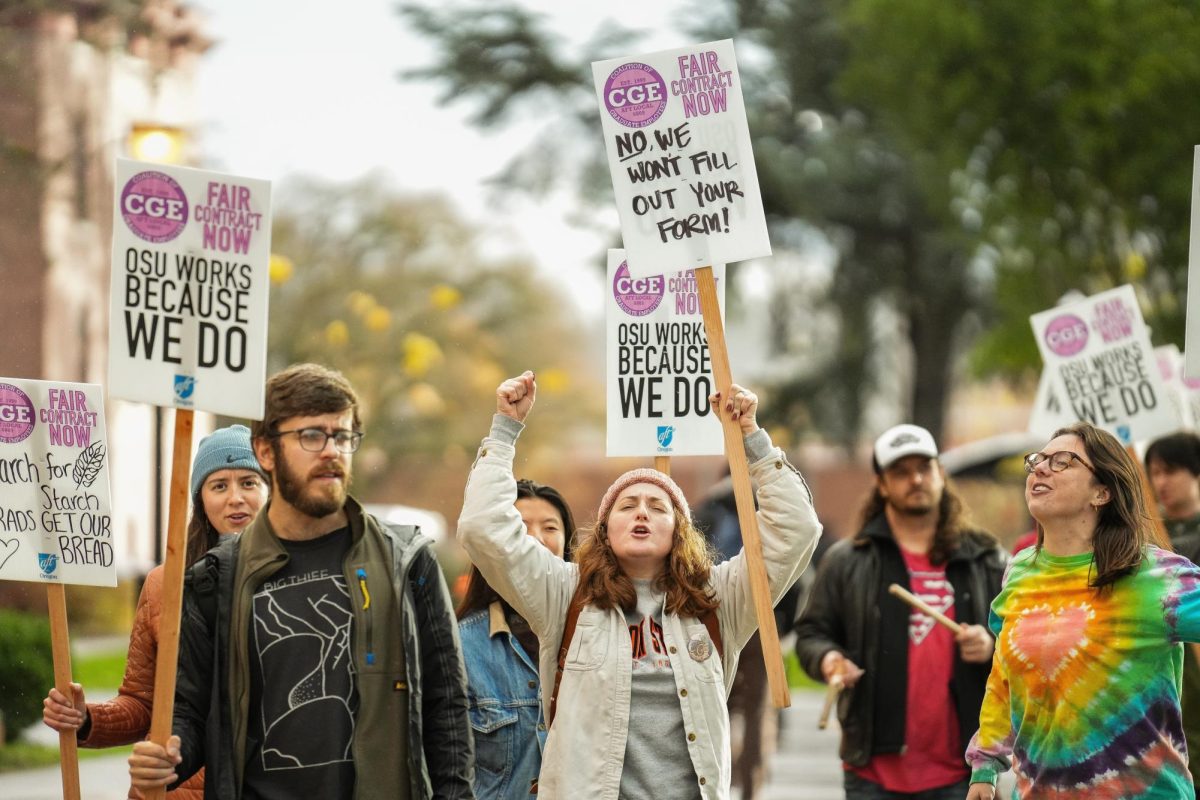As faculty and instructors in the School of Writing, Literature, and Film, we write to respectfully express our grave concern regarding the potential and actual request that we take over classes left uncovered due to the strike of our graduate teaching assistants. While we recognize the complexities of the situation and the university’s need to address instructional disruptions, we believe that this measure would cause significant harm to the school’s climate, morale, and the university’s long-term stability.
1. Erosion of Departmental Climate and Morale
Our graduate teaching assistants are vital members of our academic community. They are not only instructors but also scholars and collaborators in the pursuit of knowledge and academic excellence. By stepping into their roles during the strike, we would undermine the solidarity and mutual respect that are essential to maintaining a thriving academic environment.
Faculty and instructors stepping into these roles may be perceived as aligning with the administration against the GTAs, which would damage relationships across our school. The long-term consequences of this decision on recruitment, retention, and overall morale—both for faculty and instructors and for graduate students—cannot be overstated.
2. Undermining Faculty and Instructor Autonomy and Workload Stability
Requiring faculty and/or instructors to absorb additional teaching responsibilities sets a dangerous precedent that undermines the integrity of our Full-Time Equivalent allocations. Faculty and instructor workloads are carefully negotiated and allocated to balance teaching, research, and service. Altering these allocations without consultation and collaboration between faculty/instructors and administration disregards the academic freedom and professional responsibilities that are central to our roles as educators and researchers.
This approach not only disrupts the careful balance of our professional obligations but also signals to faculty and instructors that their workload allocations can be arbitrarily adjusted at the will of the university. Such a precedent threatens our ability to plan our academic and scholarly work effectively and to uphold the high standards of teaching and research that our students and the broader academic community expect.
3. A Disconnect Between Theory and Practice
The request that we take over the teaching responsibilities of striking GTAs—therefore, removing their most valuable bargaining chip in labor negotiations—highlights a troubling disconnect between the critical theories we teach in our classrooms and the institutional practices those theories should inspire. In courses centered on Marxist theory, critical race theory, queer theory, and other critical frameworks, we emphasize the importance of justice, equity, and the rights of marginalized communities, including workers. Yet, by undermining our GTAs’ struggle for fair compensation and labor rights, we risk devaluing the very principles we seek to instill in our students. This contradiction threatens the intellectual integrity of our curriculum and sends a harmful message about the limits of our institutional commitment to justice and equity.
4. A Message About Budget Priorities
By redistributing faculty and/or instructor responsibilities to cover for striking GTAs, the administration risks signaling that the school can function effectively on a reduced budget and an overstretched workforce. This narrative is harmful and short-sighted. It ignores the value of the work our GTAs perform, the limits of faculty and instructor capacity, and the need for sustainable investment in academic labor.
Rather than addressing underlying issues of underfunding, such measures perpetuate a cycle of austerity that undermines the quality of education and the university’s reputation. Faculty and instructor compliance in this situation does not solve the problem but rather delays meaningful resolutions and entrenches inequitable labor practices.
Our Call to Action
We urge administration to reconsider this approach. While it may seem like the only way to avoid any interruptions in undergraduate education is to compel faculty and/or instructors to take over the workload, other approaches may be possible if university and school leadership work together to solve the problem.
We also request transparency and consultation in any decisions that impact faculty and instructor workloads. These decisions should respect the professional integrity of faculty members and instructors and the importance of fostering a positive academic climate within our school.
We remain committed to the mission of Oregon State University and to providing excellent education to all our students, graduate and undergraduate. However, this must
be achieved in a manner that respects the dignity, contributions, and rights of all members of our academic community.
Sincerely,
Ana Milena Ribero, Associate Professor, School of Writing, Literature, and Film
Sarah Tinker Perrualt, Associate Professor, School of Writing, Literature, and Film
Selene Ross, Instructor, School of Writing, Literature, and Film
Lila Cutter, Instructor, School of Writing, Literature, and Film
Justin St. Germain, Associate Professor, School of Writing, Literature, and Film
Emily Podwoiski, Instructor, School of Writing, Literature, and Film
Tekla Bude, Associate Professor, School of Writing, Literature, and Film
Megan Ward, Associate Professor, School of Writing, Literature, and Film
Elena Passarello, Associate Professor, School of Writing, Literature, and Film
Jill St. Jacques, Senior Instructor II, School of Writing, Literature and Film
Bec Ehlers, Instructor, School of Writing, Literature, and Film
Surabhi Balachander, Assistant Professor, School of Writing, Literature, and Film
Karen Holmberg, Associate Professor, School of Writing, Literature, and Film
Jess Kibler, Instructor, School of Writing, Literature, and Film
Rebecca Olson, Associate Professor, School of Writing, Literature, and Film
Evan Gottlieb, Professor, School of Writing, Literature, and Film
Grace Hime, Instructor, School of Writing, Literature, and Film
Hannah Ariesen, Instructor, School of Writing, Literature, and Film
Ehren Helmut Pflugfelder, Associate Professor, School of Writing, Literature, and Film
Keith Scribner, Professor, School of Writing, Literature, and Film
Hannah Du Bose, Instructor, School of Writing, Literature, and Film
Jennifer Richter, Associate Professor, School of Writing, Literature, and Film
Sindya Bhanoo, Assistant Professor, School of Writing, Literature, and Film
Roby Conner, Instructor, School of Writing, Literature, and Film
Olga Blomgren, Visiting Assistant Professor, School of Writing, Literature, and Film
Brittni Wisner, Interim Head Academic Advisor, School of Writing, Literature, and Film
Nick Dybek, Associate Professor, School of Writing, Literature, and Film
Clare Braun, Senior Instructor I, School of Writing, Literature, and Film

















































































































